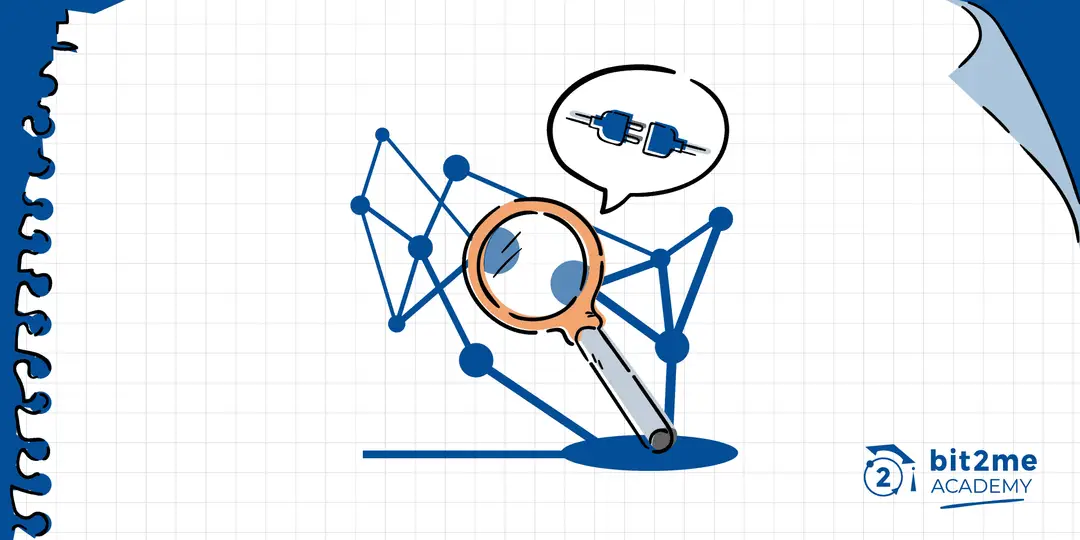Back
Seed Node
Telos
Basics
By HackQuest
Sep 12,20244 min readWelcome to the Web3 world, where digital finance and applications are shown in a revolutionary way through the fusion of blockchain technology, cryptocurrencies, and a pioneering spirit. Are you overwhelmed by the wealth of terms in the Web3 world that you don’t understand? Are those slangs barriers for you to learn about Web3? Don’t worry! We’re here to explain the obscure terms to guide your learning. Today, we're diving into an essential concept in the world of Web3: [Seed Node].
Definition and Overview
Seed nodes are specific types of nodes designed to facilitate the onboarding of new nodes onto a blockchain network. Their primary role is to provide information about other active nodes within the network, ensuring that new nodes can easily connect and synchronize with the rest of the network. Seed nodes do not typically participate in consensus or validate transactions; instead, they act as network discovery tools that help ensure connectivity across the decentralized system.
Whenever a new node joins the blockchain, it must first connect to a seed node to receive the necessary information about the blockchain's structure and active participants. This process is essential for maintaining the decentralized and peer-to-peer nature of blockchain networks.

Source: Bit2Me Academy
How Seed Nodes Work
Seed nodes act as the entry point for new nodes by providing a list of peers that the new node can connect with. Here’s how they operate:
1.Network Discovery: When a new node attempts to join the blockchain network, it connects to a seed node. The seed node responds by providing a list of active peers that the new node can connect to.
2.Peer Sharing: After connecting to the seed node and receiving a list of peers, the new node can then establish direct connections with these peers. This process ensures that the new node becomes fully integrated into the network.
3.Synchronization Assistance: Seed nodes help new nodes begin synchronizing with the blockchain by connecting them to full or validator nodes. This allows new nodes to download the latest blockchain data and participate in the network.
Seed nodes typically do not store the entire blockchain ledger or participate in transaction validation. Their primary function is to facilitate smooth network entry by providing up-to-date information on available peers.
Importance of Seed Nodes
Seed nodes are critical for maintaining the overall connectivity of decentralized blockchain networks. Without seed nodes, new participants would struggle to locate active peers, making it difficult for the network to grow and sustain its decentralized structure.
By acting as the gateway for new nodes, seed nodes ensure that the network remains accessible and scalable. Their role is particularly important in preventing network partitioning, where parts of the network may become isolated from the rest due to poor connectivity.
Seed nodes also help maintain network resilience by ensuring that new nodes can quickly find and connect to peers, even if some parts of the network experience downtime.
Types of Seed Nodes
While seed nodes generally serve the same purpose, they can be categorized based on their network access and specific configurations:
1.Public Seed Nodes: These nodes are publicly accessible and provide open access for any new node looking to join the network. Public seed nodes are essential for ensuring broad accessibility to the blockchain.
2.Private Seed Nodes: In certain cases, private seed nodes are used within permissioned or enterprise blockchains. These nodes restrict access to specific participants, providing network discovery services only to authorized nodes.
3.Fallback Seed Nodes: These nodes serve as backup nodes that a new node can connect to if the primary seed node is unavailable. Fallback seed nodes enhance network reliability by preventing connectivity issues.
Seed Nodes in Action
Seed nodes play an essential role in the Telos blockchain by enabling new nodes to discover active peers and connect to the network. On Telos, seed nodes are critical for onboarding new participants, such as validators and API nodes, ensuring they can synchronize with the blockchain efficiently. These seed nodes help maintain decentralization and network stability by providing reliable peer discovery services. As the Telos network grows, seed nodes ensure seamless participation, supporting the network's high-performance goals and enhancing the user experience across decentralized applications (dApps).

Source: Medium
Future of Seed Nodes
As blockchain technology evolves, seed nodes will continue to play a critical role in network onboarding and connectivity. Efforts to decentralize seed nodes and improve their scalability are ongoing, with many networks exploring ways to ensure that seed nodes remain accessible, secure, and efficient.
Improvements in peer discovery algorithms and enhanced network architectures could make seed nodes even more effective in supporting large, decentralized networks. With the growing adoption of blockchain technology, the role of seed nodes in maintaining network integrity and accessibility will remain essential.
Conclusion
Seed nodes are indispensable for maintaining the connectivity and scalability of blockchain networks. By providing essential peer discovery services, they enable new nodes to easily join and synchronize with the network. As blockchain adoption continues to grow, seed nodes will remain a key component in ensuring the resilience and accessibility of decentralized systems. Through ongoing advancements, seed nodes will play an increasingly vital role in supporting the health and growth of blockchain ecosystems.